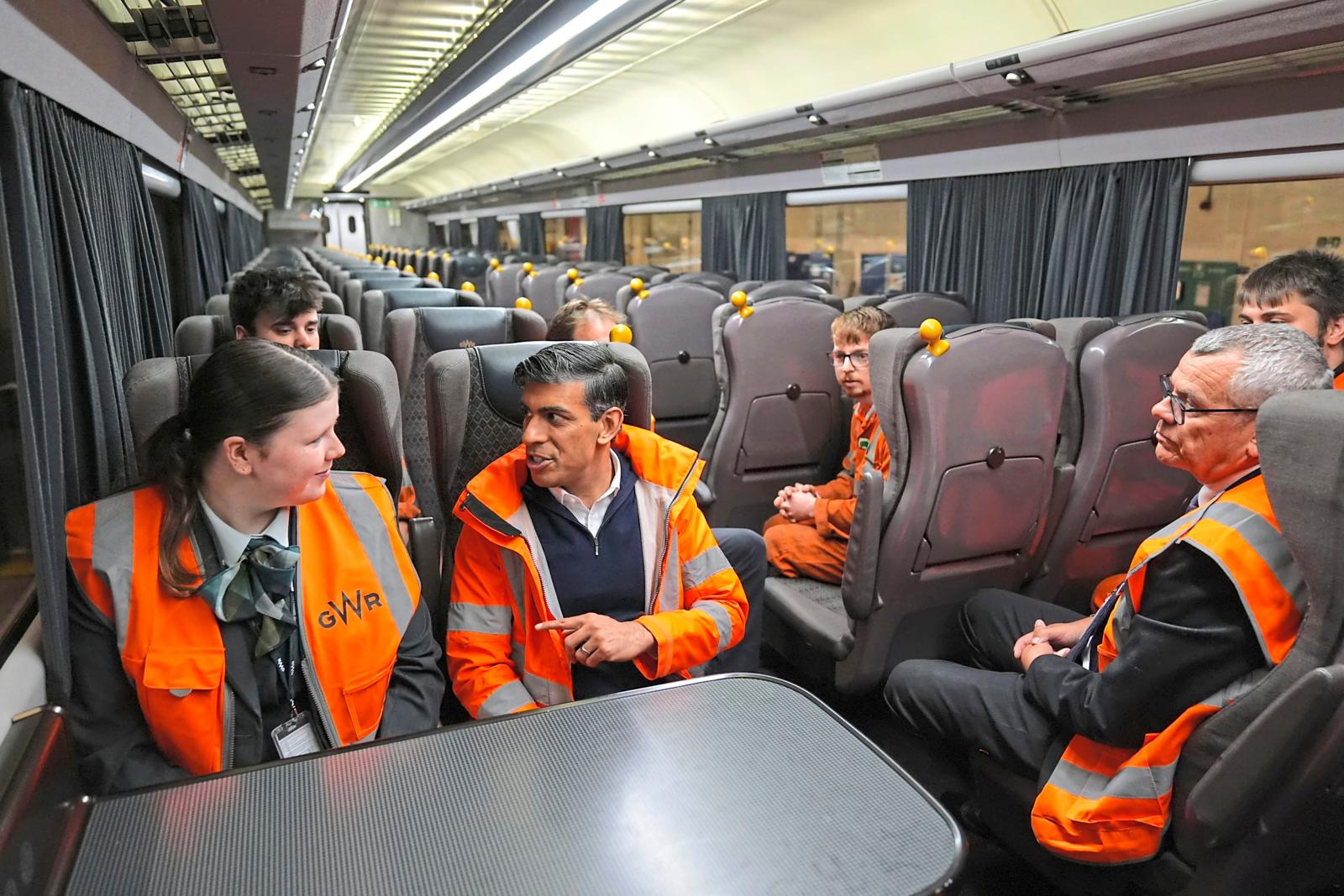
With the General Election now less than a month away, Howard Johnston studies party statements and photo opportunities to assess what the next government might really do for rail

With the General Election now less than a month away, Howard Johnston studies party statements and photo opportunities to assess what the next government might really do for rail
Is this the year when Great British Railways (GBR) finally leaves the starting blocks? Will the regions get their money to achieve their aims of a better deal for passengers? Will routes reopen? And will there be more and faster freight?
Britain’s voters go to the polls on July 4 to decide who will govern the country for the next five years.
While it is obvious that issues such as hospital waiting lists, education and defence are the main battleground for the political parties, how sincere are the politicians on the transport pledges they are making in their manifestos?
In truth, there doesn’t seem to be much difference between the two main parties, and primarily we must judge who can do the best job with what already exists.
Rail users can only decide on the performance of the Conservative administration since 2010, and on Labour’s detailed plans to work out who should be trusted to take us forward.
The Liberal Democrats seem to be focused on bigger vote winners, while Reform UK has the single aim of seeing HS2 scrapped with 100 days of being elected (that’s October 14, by the way).
The Green Party, still a minority voice, can bask in the glory of having had many of its 2019 transport policy statements actually adopted by the present government.
Conservatives
The Conservatives, who were 22 points behind in some opinion polls at the end of May, have not put rail at the top of their agenda. Nevertheless, we are entitled to question why some of their initiatives are lagging so far behind schedule.
Why is there so little progress with GBR, particularly as former Transport Secretary Grant Shapps was so keen on its implementation in 2021 that he engineered changing the name of the strategy document to the Williams-Shapps Plan for Rail?
The Conservative-led government can claim that the national network runs quite well on the whole, and has benefited from multi-billion-pound investment from private companies to modernise and replace vast swathes of rolling stock, install rigid performance measures, and recover well from COVID.
Vast sums are going into Northern Powerhouse Rail and the Midlands Hub, electrification of the full Midland Main Line (at long last), and the Transpennine Route Upgrade. Trams could be returning to Leeds and Bradford, and there is a nationwide upgrade of signalling and communications technology.
However, the Conservative government’s credibility was not helped by the publication last month of a National Infrastructure Commission report, which under former Network Rail Chief Executive Sir John Armitt criticised a lack of cohesion and a ‘do nothing’ policy for the West Coast Main Line in the North following the abandonment of a leg of HS2.
Armitt’s report says that year-by-year funding stifles proper planning and organised investment.
London hopes things will change. Will it (and the regions) get the extra money and freedom they clamour for, and will there be new city tramways in Bristol, Liverpool and Glasgow?
Is there any hope for reopenings such as Skipton-Colne, Lewes-Uckfield, March-Wisbech, Bere Alston-Tavistock, the Carlisle-Tweedbank section of the Borders Railway, and reinstatement of the old Peak Forest main line between Matlock and Buxton?
Labour
The Labour Party is making a lot of noise about transport, having just published a detailed 28-page large format report, titled Getting Britain Moving: Labour’s Plan to Fix the Railways.
It is signed off by Shadow Transport Secretary Louise Haigh, and is clearly the work of a large research team, recognising the merits of the Williams-Shapps Plan (several times). Few will disagree with its findings, even if much of it is simply stargazing.
Labour says it wants to renationalise the railways, although the Conservatives have already done much of the work. The passenger franchise is no more, and while returning freight to public ownership is not practical, ‘nationalisation’ has been a buzz word for Labour in previous General Elections.
Back in 1996, former Deputy Prime Minister and Transport Secretary John Prescott was pulled up by his colleagues after he had made a pre-election pledge to return the railways into public ownership. Labour won the following year, and Prescott was quickly reminded that his ideas were both unachievable and unaffordable.
His response was to create the Strategic Rail Authority (SRA), which was disbanded after just six years because it proved ineffective. Prescott also promised 25 new city tramways in ten years, but his successor (and later Chancellor of the Exchequer) Alistair Darling unceremoniously dumped many of these ideas.
Having to shake off its reputation of being indecisive when it was in power between 1997-2010, Labour now wants a Railways Act in the first parliamentary session, to create GBR. It wants to transfer expiring train operator contracts directly to the new statutory body and cut others short.
Labour will know that major reforms take time (some might take 25 years) and are a cash windfall for legal teams who thrive on regular upheavals and uncertainty.
The party already knows that there is very little money to spend, and the latest announcement that public spending may have to be cut to keep taxes down does not bode well for major infrastructure projects that are only at the planning stage, and thus easy prey for postponement or even cancellation.
Haigh is also pointing her guns at the Department for Transport and HM Treasury. She accuses them of “hampering the efficient running of our railways” and “creating a fundamental divide in the Government’s management of the industry, embedding a temptation to run the railway for the short term”.
She continues: “The stifling but ineffective micro-management of operators and staff against narrowly specified contract criteria means that operators lack the freedom to innovate, improve the quality of services, and increase demand. As a consequence, people with talent and experience within train operators are leaving.”
Labour badly wants GBR - “an arm’s length body and directing mind of empowered rail industry experts and professionals, tasked by the Secretary of State with a relentless focus on passengers and freight customers. GBR would be responsible for planning timetables, improving services, and the operation, maintenance, and improvement of rail infrastructure.”
There is nothing new here. It is also Conservative philosophy.
Liberal Democrats
The Lib Dems’ transport ‘must do’ list is rather brief. There is no mention of GBR or HS2, scant reference to the needs of passengers, and nothing on the future role of the DfT, freight, rolling stock, or the role of the Treasury.
Without anything to back up their statements, the Lib Dems say they will (in order): extend and complete the electrification of Britain’s rail network, improve stations, enhance disabled access, reopen smaller stations, and restore twin-track lines to major routes.
The party will give greater decision-making powers and devolve resources for local authorities in England (what about Wales and Scotland?) “to design public transport infrastructure around community needs”.
It will also freeze fares and simplify ticketing.
Greens
The Green Party hopes to win votes by pressing for infrastructure improvements to have minimum impact on the environment and improving health, with local needs given priority over travelling greater distances.
Rail comes third in its list of transport priorities, which are walking and cycling. But it is ahead of light goods vehicles, taxis, private cars, lorries and (lastly) aeroplanes.
The Greens favour public ownership and the cancellation of passenger franchises, reopening disused lines, building more rolling stock with cycle spaces, and bringing an end to sales of redundant railway land.
They want more trams, the reintroduction of trolley-buses, and a new national discount railcard. They say that a levy on imported freight containers would fund more intermodal terminals.
The party set out its stall on HS2 back in 2019, urging for it to be scrapped in favour of improvements to the existing network. This was prophetic, and last year’s cancellation of the northern leg to Manchester would have gladdened the hearts of many Greens - but not those within the party who see HS2 as a good way of eliminating the evils of highly polluting domestic air travel.
Green activists want to “create a new golden age of trains by opening new rail connections to remove bottlenecks, increase rail freight capacity, improve journey times and service frequencies, enhance capacity in the North West, Midlands and North, and connect currently unconnected urban areas… we would also look, where feasible, to reopen closed stations.”
It calls for electrified rail lines from Liverpool and Manchester to Sheffield, Hull, and the Tees Valley via Bradford and Leeds, so it has already got some of its own way.
Scottish National Party
The SNP, which is pulling itself back together after the elevation of John Swinney to leader, has not majored on transport in its early General Election speeches.
While it clearly seeks to have control of ScotRail, it is pleased that the popular abolition of peak-time fares has been extended at least until the end of September. The long-term viability of this strategy relies on increasing business.
Beyond that, the SNP expresses pride in its support of the success of Edinburgh Trams, conveniently overlooking that it actively campaigned to cancel the entire scheme back in 2007. Fortunately, it was outvoted.
Reform
If elected, the Reform Party will cancel HS2 within 100 days. It says it will immediately save £25 billion by “scrapping the rest of this bloated vanity project”.
The Reform campaign document also states: “Our transport [and utilities infrastructure] has suffered from under-investment and lack of joined-up thinking. Much of it has been sold to overseas investors. Their shareholders get richer while prices have soared and the cost-of-living crisis rages. Regulators have been asleep atthe wheel, and our infrastructure is crumbling.”
On Day 101, after HS2 has turned to dust, Reform UK wants to have “Integrated Transport Infrastructure, which means a national database for councils, contractors, government and utilities to ensure co-ordination of projects”.
Login to continue reading
Or register with RAIL to keep up-to-date with the latest news, insight and opinion.


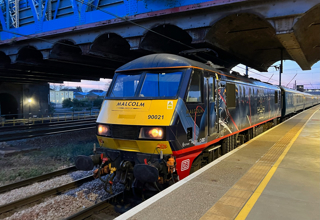
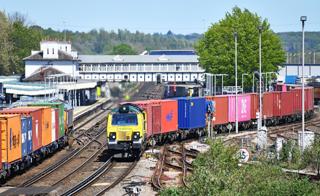
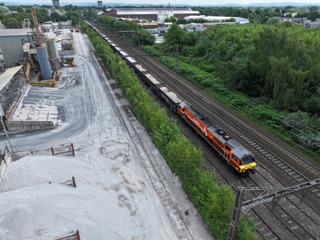
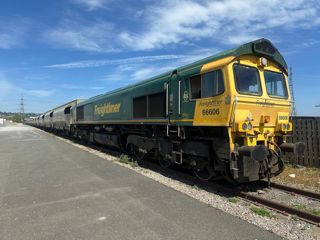
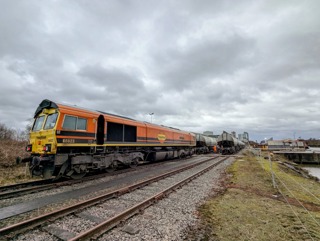










Login to comment
Comments
No comments have been made yet.